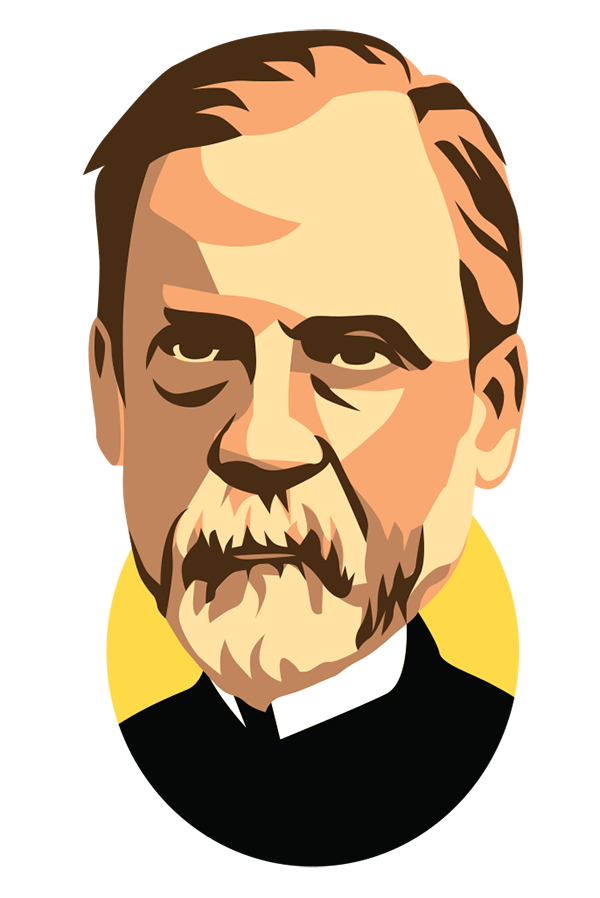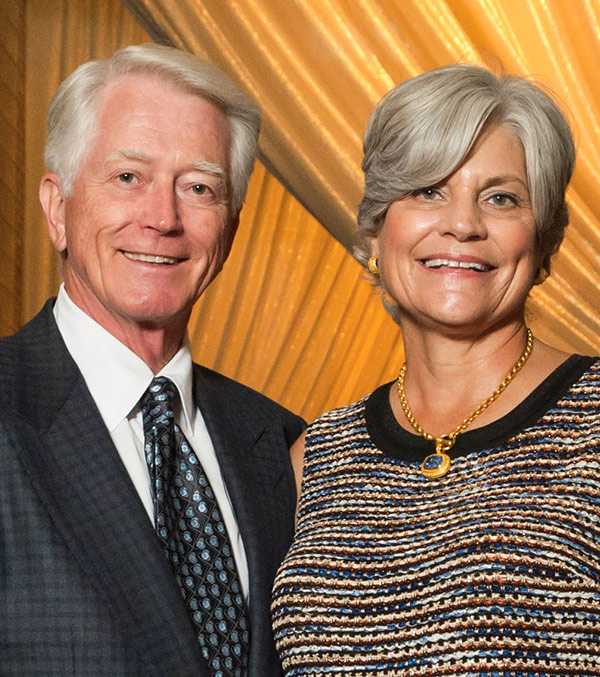By Lori Friedman and Katie Kackenmeister
The U.S. approach to graduate education—in which students pursue answers primarily to satisfy the intellectual curiosities of their faculty advisor—hasn’t changed much since the period after World War II, according to professor Himanshu Jain.
Yet students embarking on advanced degrees are more driven by their own research interests and social compass and have a clearer vision of their post-graduation aspirations than ever before. Today, he says, a “one size fits all” graduate educational model no longer suffices.
“We need to empower highly motivated students who are interested in making a mark on society and seeing the impact of their work in a reasonable time frame,” Jain explains. “A student-focused graduate education more closely aligned with solving real-world, industry problems should be available as an alternative to the conventional path.”
The idea of a student-centric, “use-inspired” track captured the attention of the National Science Foundation as a pilot program of sorts that, if proven successful, could bring about significant change in the way that talented young minds engage in advanced pursuits across science and engineering academia.
Lehigh’s innovative Pasteur PhD Partners (P3) Fellowship provides fresh thinking and a new approach to the ecosystem of support and resources around candidates pursuing doctoral degrees in science, technology, engineering, and math (STEM).
“Students selected as P3 Fellows are actively involved in defining the scope of their dissertations, and this itself is a remarkable departure from traditional PhD studies,” says Jain. “Working with their academic and corporate-sponsor advisors, these students forge a path that aligns their individual goals with the research objectives identified by one of the program’s external partners.”
Jain, the T.L. Diamond Distinguished Chair and Professor of Materials Science and Engineering and the director of the Institute for Functional Materials and Devices (I-FMD), serves as the principal investigator of the project, partnering with fellow science and engineering faculty, as well as faculty from Lehigh’s College of Education and a colleague at Corning Incorporated.
 Critical insights from practical problems
Critical insights from practical problems
The P3 program’s namesake, Louis Pasteur, heralded use-inspired research as a fundamentally different approach to the discovery and understanding of natural phenomena. The 19th-century scientist and father of microbiology started with a practical need or problem and employed it as a guide to identifying important fundamental questions. For instance, his study of fermentation and work in removing microorganisms from beer and wine led him to critical insights that advanced the germ theory of disease and the development of vaccines.
P3 is based on a stronger collaboration between academia and industry that reflects the rapid advance of technology and the demand for technologically astute leadership across all sectors. The program maintains the academic rigor of existing doctoral programs while building sometimes overlooked soft skills, including communication, intellectual property awareness, and team/project management.
“We’re excited to help catalyze the P3 program,” says Gary Calabrese ’79, senior vice president of global research at Corning, which is sponsoring one of the pilot fellowships. “We conduct use-inspired research every day, gaining knowledge that allows us to invent new products. Bringing PhD students into the process will allow them to be more mindful of the relevance of their work and its impact.”
Calabrese, who is a member of the National Academy of Engineering and served on the American Chemical Society’s Presidential Commission on Graduate Education in the Chemical Sciences, also sees P3 as a way to solidify communication skills in the next generation of research scientists. “Being able to explain research questions—what you’re doing and why—to both technical and nontechnical audiences is not something every student can do. That ability may seem subtle, but it makes a profound difference in the workplace.”
P3’s overarching goal, says Jain, is to prepare graduate students to thrive in an industrial setting, or to be more well-rounded faculty members if they choose to go into academia. “We also believe this approach will help invigorate the pipeline of domestic doctoral students,” he adds, “which is of interest to our colleagues at the NSF.”
Bridging the industry-academia gap
One of the P3 model’s defining factors is early and sustained industry engagement. Each student starts off with a summer internship with their corporate partner. The company is then involved in identifying the research question that forms the basis for the student’s doctoral thesis and provides mentoring and professional development. Later on, students complete an on-site residency (similar to medical school training), spending six to 12 months working as a “scientist in training.”
Moreover, where traditional curiosity-driven research is open-ended, P3 has a more defined timeline: The fellowship provides a competitive stipend and full tuition for the duration of doctoral studies, which are expected to be completed in just four years.
Corporate partners reap in-depth understanding of critical issues related to new processing methods, devices, and products, along with relevant technological expertise. At the same time, they gain recruiting access to the most highly trained R & D–capable prospects while building productive partnerships with Lehigh’s expert faculty.
“Companies and universities have distinct roles,” says Alan Snyder, vice president and associate provost for research and graduate studies at Lehigh. “Companies strive to produce products and services that address their customers’ needs. University research, by taking on deep, difficult, long-term questions, produces knowledge and understanding that enable future progress. Our goal here is to bring these endeavors close together in a way that respects our separate roles and enriches our students’ experiences.”
The team plans to compare outcomes of the initial cohort with a reference group of students taking a more traditional route.
“We hope to demonstrate the viability of this approach at Lehigh,” says Jain, “and for this method to eventually be adopted at institutions across the U.S., ushering in a system-wide change.”
Illustration Credits: Cosmaa/Shutterstock (Map Illustration); Roseed Abbas (Pasteur)

